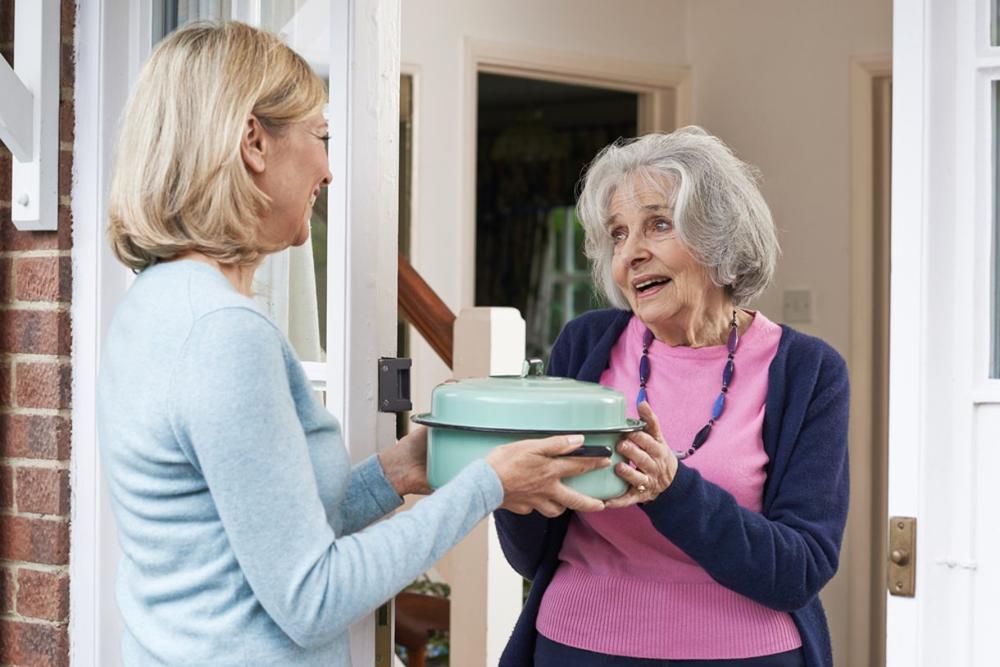‘Supported housing’ is designed to provide housing and care to help vulnerable people maintain their dignity and be part of a community. Support delivered to individuals is intended to help prevent social issues such as homelessness, poverty, abuse and mental health problems from arising.

Housing support is suitable for a variety of people who need low-level support daily, but not around-the-clock care.
The number of visits you have per week and how long they last from your support worker varies according to the level of support that you need. For example, some people may need daily care, and others may need a few short visits once a week or month.
There are many schemes available to meet the desired needs of individuals to enable them to manage daily whilst living in their own home, or in assisted living. This can include helping with:

Support is usually provided by a support worker, or a team who usually are from the council. The workers visit you at home, as well as supporting people to appointments, shopping trips and social events.
Some housing associations have support teams, and you don’t have to be a tenant of the housing association to receive support from their team. There are support teams who don’t have a connection to housing providers to help support in your own home.
There may become a time when you cannot look after yourself at home and require support. When this arises, you may be able to stay in your home and have alternations to your furniture to suit your needs. To find out if you are eligible for this, ask the social services department of your local council for an assessment. A social worker, or occasionally an occupational therapist or nurse, will arrive at your home and ask you several questions, including what you find difficult on a daily basis – considering the emotional and physical aspects of your life.
Once social services have assessed your needs and come to a decision about what help you are entitled to, they must create a social care plan for you. You are entitled to a written copy of your assessment and care plan – if you don’t receive one, ask.
Care at home can include:
Home assistance can be provided by the council, including social services, the housing department or the NHS.

If you find it difficult to manage day-to-day life, you may want to consider other housing options that can provide visiting support, or support on site, known as ‘sheltered housing’. There are a number of housing schemes available through the council, which can be bought or rented. These dwellings often have an on-site manager offering support and assistance to residents during office hours. Some places even have 24-hour emergency alarm systems to ensure care is given when needed, but still allowing independence.
Depending on the housing provider, each scheme has specific criteria. For most sheltered housing accommodation, the age requirement is 60 years old, however this varies from place to place. For example, some schemes currently offer sheltered housing who are younger with a medical or physical issue, or learning difficulty.
Please note: Sheltered housing is not the same as a care home.

When enquiring about housing support, you may be able to get help with social care from the help of your local council. To find out about eligibility, you should contact your local council and ask them to assess your needs, as well as asking your GP or social worker. If you are in hospital, you can ask the hospital social work team if there is any help you can receive when back at home. Each local authority’s assessment procedure varies, but this should be outlined on their website.
Socialcareinfo.org is a website designed to help find local and national social care resources and places to find advice in your local area.
You can apply to sheltered housing on Gov.uk. Alternatively, you can have 24-hour assistance at home by asking to have a community alarm installed. This can be applied for on Gov.uk, or through your local council.
Care arranged by your local council is not usually free, and you will be asked questions about your finances. There are national rules for charging, and often the council considers the value of your property. Most local authorities in England will charge you the full cost of care if you have savings worth more than £23,250 (this number varies in Wales, Scotland and NI).
Home care costs tend to be calculated hourly, and on average home care rates in the UK are around £13. This means that if you need five hours of care per week, you can expect to pay around £260 per month. Visit UKcareguide.uk to find out an approximate home care cost based on your local county.
Depending on your financial circumstances, social services may decide that you must pay for some of the care you receive. Particularly if you have a low income, or receive welfare benefits, you may be able to get help from your local council to help pay for housing support. You can check on the Gov.uk website to see whether you are eligible.

If you wish to arrange and pay for home care yourself, there are private agencies you can use. To ensure you get the best quality care for the right price, ask friends and family for recommendations and be sure to check that any agencies are registered with the Care Quality Commission (CQC). Visit the UK Home Care Association website to find details of home care providers that follow the CQC code of practice.

